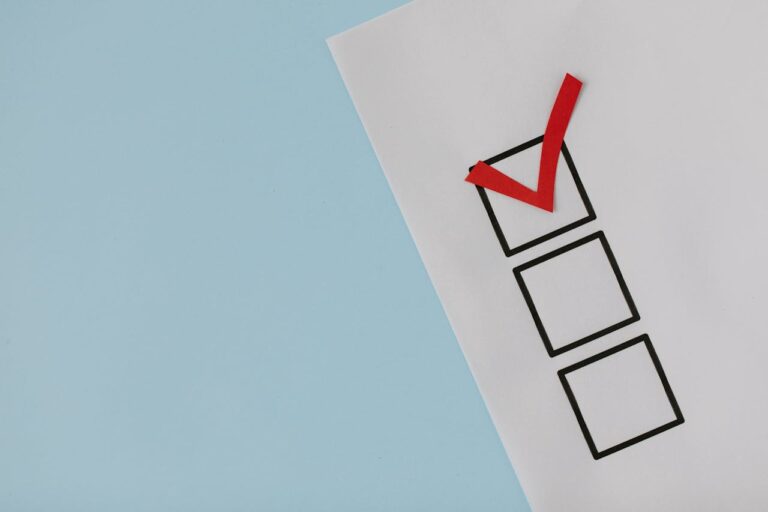Air New Zealand Assessment

How do I pass the Air New Zealand pre-employment assessment test?
If you’re planning to apply for a position at Air New Zealand, you’ll likely go through a multi-stage hiring process that includes one or more assessment tests. These evaluations are designed to measure your cognitive ability, personality traits, and how well you handle real-world airline scenarios. Whether you’re aiming to be cabin crew, customer service agent, engineer, or pilot, understanding what to expect-and how to prepare-can make all the difference.
Air New Zealand is known not only for its safety record and innovation but also for its competitive and well-structured hiring process. Whether you’re applying for a customer-facing role, cabin crew, engineering, or corporate positions like finance or digital marketing, you can expect to go through one or more assessment stages designed to evaluate your skills, values, and cultural fit.
1. What Is the Air New Zealand Assessment Test?
The Air New Zealand Assessment Test is a part of the company’s pre-employment screening process. It is designed to identify candidates who demonstrate strong problem-solving skills, situational judgment, and alignment with the airline’s core values such as care, teamwork, safety, and customer service.
This assessment may include:
-
Cognitive Ability Tests: Evaluate numerical reasoning, verbal reasoning, and logical thinking. These are timed tests that measure your ability to work with information under pressure.
-
Personality & Behavioral Assessments: These tests assess how well your personality matches the Air New Zealand culture. Expect questions that measure how you react to various work situations.
-
Situational Judgment Tests (SJTs): These present hypothetical scenarios that you might encounter on the job, especially in customer service roles. You’ll need to select the best course of action.
-
Job Simulation Exercises: Depending on the position, you may be given tasks that mimic real work situations-like responding to customer emails or managing flight schedules.
-
Video or Online Interviews: Some roles will include pre-recorded or live video interviews where your communication and problem-solving skills are evaluated.
2. Which Roles Require Assessment?
The assessment process varies by role. Here is a simplified breakdown:
| Role | Typical Assessment Components |
|---|---|
| Cabin Crew | SJT, group exercises, personality test, interview |
| Customer Service Agent | SJT, cognitive test, interview |
| Pilot | Advanced cognitive testing, simulator, psychometric tests |
| Engineering | Technical knowledge test, cognitive assessment, interview |
| Graduate Program | Cognitive test, personality assessment, case studies, interview |
| Corporate/Office Roles | Personality test, reasoning test, skills test, panel interview |
3. How to Prepare
1. Practice cognitive ability tests
Familiarize yourself with numerical and verbal reasoning questions under time pressure.
2. Study Air New Zealand’s values
Review the company’s mission and customer-first culture. Tailor your answers to reflect these values in behavioral tests or interviews.
3. Prepare for video interviews
Set up your space professionally and rehearse STAR-format answers for behavioral questions.
4. Use practice platforms
Websites like 24Practice.com offer free practice assessments similar to those used by airlines and other large employers.
4. Tips to Pass the Assessment
-
Be consistent: Personality and behavioral tests may repeat questions in different formats to check consistency.
-
Don’t overthink: Choose responses that are instinctively correct and align with a safety- and service-oriented mindset.
-
Stay calm under pressure: Many tests are timed to simulate high-pressure environments-like dealing with real-life flight operations.
Air New Zealand Hiring Process (2025)
Air New Zealand’s hiring process is designed to identify candidates who are not only skilled but also aligned with the airline’s core values of safety, care, and teamwork. The process typically involves several stages and varies slightly depending on the role.
1. Online Application
Candidates begin by submitting an application through the Air New Zealand careers portal. It’s essential to tailor your resume and cover letter to highlight relevant experience, customer service focus, and cultural alignment with the airline.
2. Online Assessments
Shortlisted applicants are invited to complete one or more online assessments. These may include:
-
Cognitive ability tests (verbal, numerical, logical reasoning)
-
Personality or behavioral assessments
-
Situational judgment tests (especially for cabin crew or customer service roles)
3. Video Interview or Phone Screening
For many roles, a pre-recorded or live video interview follows. This stage assesses communication skills, professionalism, and alignment with company culture.
4. Assessment Center or In-Person Interview
Selected candidates are invited to an assessment center or interview. Group activities, role plays, and job simulations may be used to evaluate collaboration, decision-making, and problem-solving skills.
5. Background Checks & Offer
Candidates who perform well undergo reference and background checks. Successful applicants receive a formal job offer and begin onboarding.
Sample interview questions by position
1. Cabin Crew
Sample Questions:
-
Tell me about a time you had to deal with a difficult passenger.
-
How do you handle stress when flights are delayed or rerouted?
-
Describe a situation where you worked as part of a team under pressure.
What They’re Looking For:
Excellent customer service, calm under pressure, teamwork, and safety awareness.
2. Customer Service Agent (Airport or Call Center)
Sample Questions:
-
Give an example of how you handled a frustrated customer.
-
How would you prioritize tasks during peak travel hours?
-
Tell me about a time you had to solve a problem without a supervisor present.
What They’re Looking For:
Problem-solving, communication skills, ability to stay composed in fast-paced environments.
3. Pilot (Entry-Level or Experienced)
Sample Questions:
-
Describe a time you had to make a quick decision during a flight.
-
How do you ensure passenger safety during unexpected conditions?
-
What is your approach to CRM (Crew Resource Management)?
What They’re Looking For:
Situational awareness, decision-making, technical knowledge, and leadership.
4. Engineer / Aircraft Maintenance
Sample Questions:
-
Walk me through how you would troubleshoot a hydraulic failure.
-
Describe a time you had to work overnight to meet a maintenance deadline.
-
How do you ensure compliance with aviation safety standards?
What They’re Looking For:
Technical accuracy, compliance, problem-solving, and reliability.
5. Corporate Role (e.g., Marketing, HR, Finance)
Sample Questions:
-
How do you prioritize competing deadlines across projects?
-
Tell me about a time you used data to improve a process or outcome.
-
How do you align your work with company strategy?
What They’re Looking For:
Analytical thinking, strategic alignment, communication, and collaboration.
Frequently Asked Questions About the Air New Zealand Assessment Test
Practice numerical, verbal, and logical reasoning questions. Familiarize yourself with common airline scenarios and review Air New Zealand’s core values. Use online practice platforms like 24Practice.com to simulate real test conditions.
Most operational, customer-facing, and graduate roles require some form of testing. However, senior or technical roles may skip online assessments and focus more on interviews and case studies.
Yes. Air New Zealand receives thousands of applications annually, especially for cabin crew and graduate roles. Strong preparation can significantly improve your chances.
It typically takes 3 to 6 weeks from application to job offer, but timing can vary depending on role type, number of applicants, and scheduling.
Dress in smart business attire. Cabin crew candidates should aim for a neat and professional appearance that reflects airline grooming standards.






